Removal Procedure
Notice: If a turbocharger has failed, clean any turbocharger debris or excessive oil from the charge air cooler system before installing the new turbocharger. Failure to clean debris from the charge air cooler system will cause severe turbocharger and engine damage upon startup. Failure to clean excessive oil from the charge air cooler system may cause an engine runaway condition on startup, resulting in severe engine damage.
Important: If a turbocharger failure is thought to be caused due to lack of oil, the camshaft bearing should be checked. The number 4 camshaft bearing bore feeds the turbocharger oil supply (feed) pipe. If this camshaft bearing spins in the bore, the turbocharger will be starved for oil. This will cause a failure of the turbocharger. Failure to diagnosis this condition will result in repeat turbocharger failures.
- Disconnect the negative battery cable. Refer to Battery Negative Cable Disconnection and Connection in Engine Electrical.
- Move the hood to the service position by moving the hood hinge bolts (1) to the service position (2).
- Raise and suitably support the vehicle. Refer to Lifting and Jacking the Vehicle in General Information.
- Loosen the exhaust pipe clamp. Slide the clamp onto the exhaust pipe.
- If equipped with an automatic transmission, remove the fill tube to bellhousing nuts.
- Position the fill tube to the right side of the vehicle. The tube does not require removal from the transmission.
- Remove the left exhaust heat shield nuts (2) and shield (3) at the front of the lower dash panel.
- Remove the left exhaust pipe heat shield bolts.
- Position the left exhaust pipe heat shield in order to access the left exhaust pipe to exhaust manifold bolts. Do not remove the heat shield from the vehicle at this time.
- Remove the left exhaust pipe to exhaust manifold bolts (2).
- Remove and discard the gasket.
- Remove the right exhaust pipe to exhaust manifold bolts (1).
- Remove and discard the gasket.
- Remove the lower bolt (2) for the exhaust outlet shield.
- Lower the vehicle.
- Loosen the outlet duct clamp at the upper intake manifold cover.
- Remove the upper intake manifold cover from the outlet duct.
- Remove the upper intake manifold cover.
- Drain the cooling system. Refer to Cooling System Draining and Filling in Engine Cooling.
- Loosen the outlet duct clamps at the turbocharger and the mass air flow/intake air temperature (MAF/IAT) sensor.
- Remove the outlet duct from the turbocharger.
- Loosen the charged air cooler outlet duct to intake hose clamp (1).
- Remove the charged air cooler outlet duct from the intake.
- Loosen the charged air cooler inlet duct to turbocharger clamp (1).
- Remove the charged air cooler inlet duct from the turbocharger.
- Disconnect the air conditioning (A/C) compressor clutch electrical connector.
- Disconnect the A/C cut out switch electrical connector.
- Remove the drive belt. Refer to Drive Belt Replacement .
- Remove the A/C compressor bolts.
- Move the A/C compressor with the hoses attached to the right side of the engine compartment.
- Remove the turbocharger inlet coolant hose from the turbocharger coolant bypass valve.
- Remove the turbocharger outlet coolant hose from the turbocharger.
- Remove the positive crankcase ventilation (PCV) hose from the left valve rocker arm cover.
- Position the hose out of the way.
- Remove the wire connector from the intake heater.
- If equipped, remove the intake air heater relay. Refer to Intake Air Heater Relay Replacement in Engine Controls - 6.6L.
- Remove the turbocharger heat shield bolts.
- Remove the turbocharger heat shield.
- Remove the remaining exhaust outlet heat shield bolts (1, 3).
- Remove the exhaust outlet heat shield.
- Remove the exhaust outlet bolts and nuts.
- Move the exhaust outlet to one side in order to access the right exhaust pipe to turbocharger bolts.
- Remove and discard the exhaust outlet gasket.
- Remove the right exhaust pipe to turbocharger bolts (2).
- Remove the right exhaust pipe.
- Remove and discard the gasket.
- Move the exhaust outlet to one side in order to access the left exhaust pipe.
- Remove the left exhaust pipe heat shield from the vehicle.
- Remove the left exhaust pipe to turbocharger bolts (1).
- Remove the left exhaust pipe.
- Remove and discard the gasket.
- Remove the turbocharger oil feed pipe bolt and washers.
- Move the oil feed pipe out of the way.
- Remove the turbocharger oil return pipe nuts at the flywheel housing.
- Remove the turbocharger bolts.
- Remove the turbocharger with oil return pipe.
- If required, remove the turbocharger lower heat shield.
- If required, remove the oil feed pipe bolt, washers, and pipe.
- If the turbocharger has failed, perform the following steps to verify the condition of the number 4 camshaft bearing before installing a new turbocharger:
- If replacing the turbocharger, remove the following items:
- Clean the following gasket surfaces:
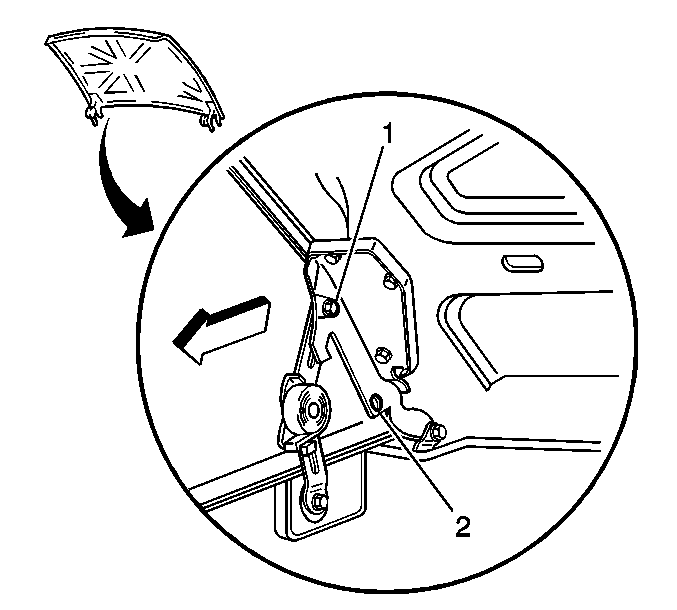
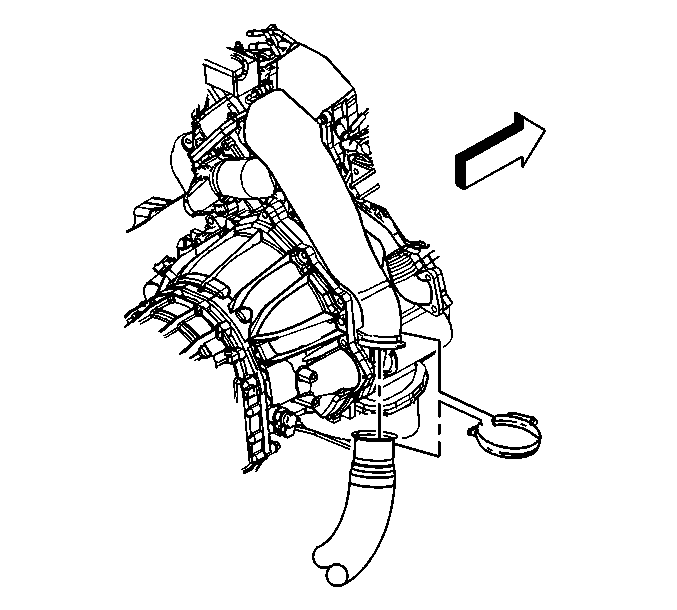
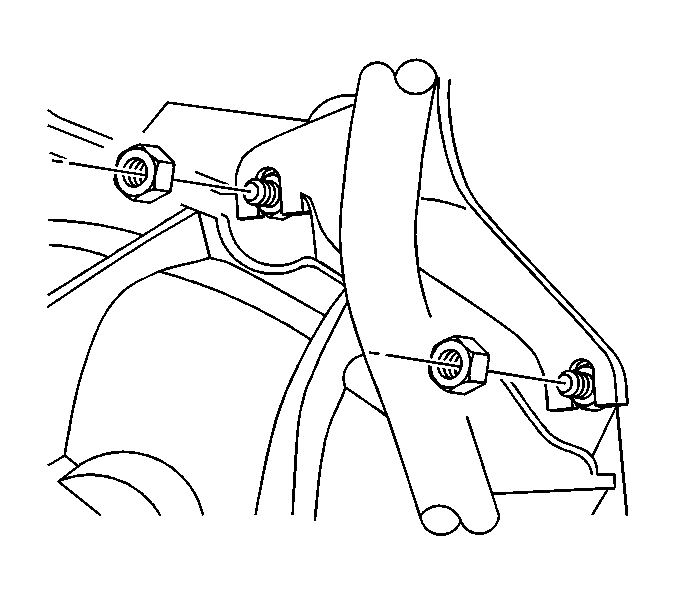
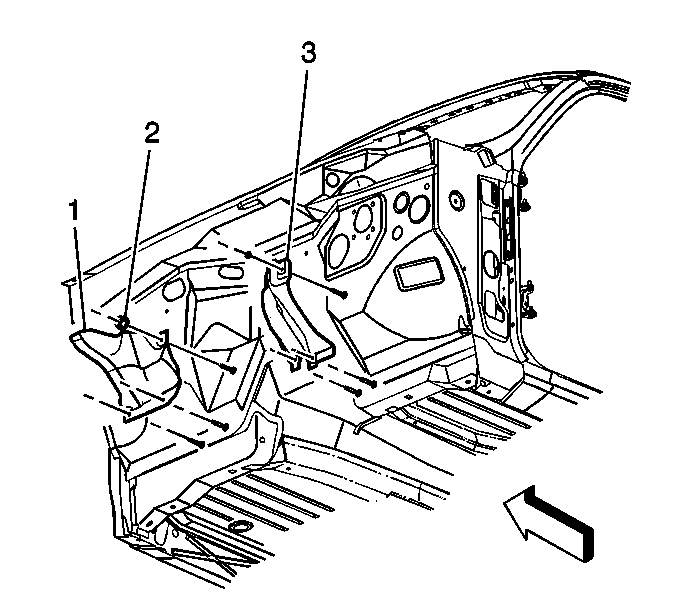
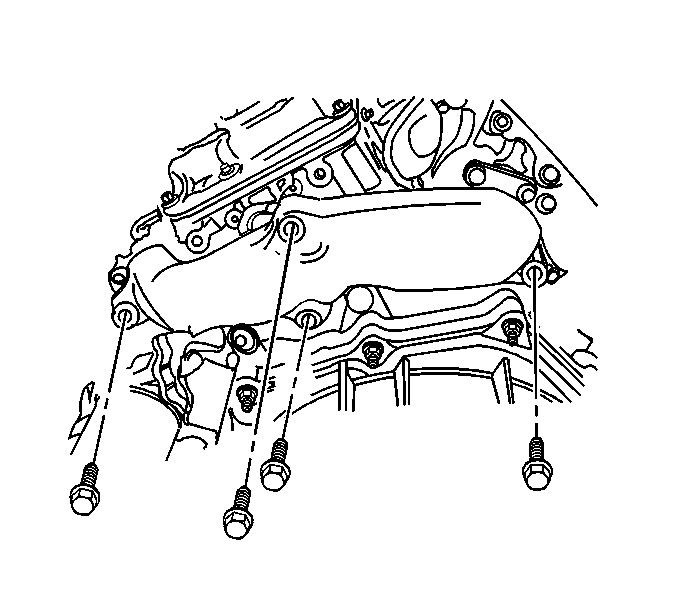
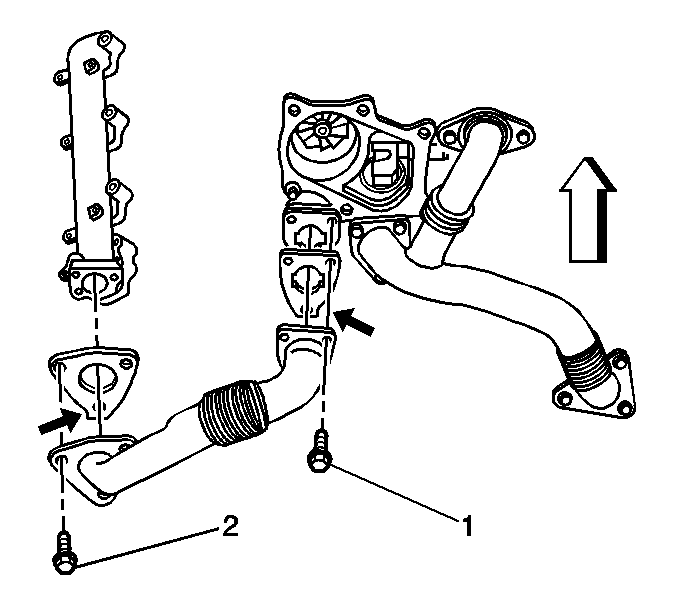
Important: Do not bend the exhaust pipe at the expansion area.
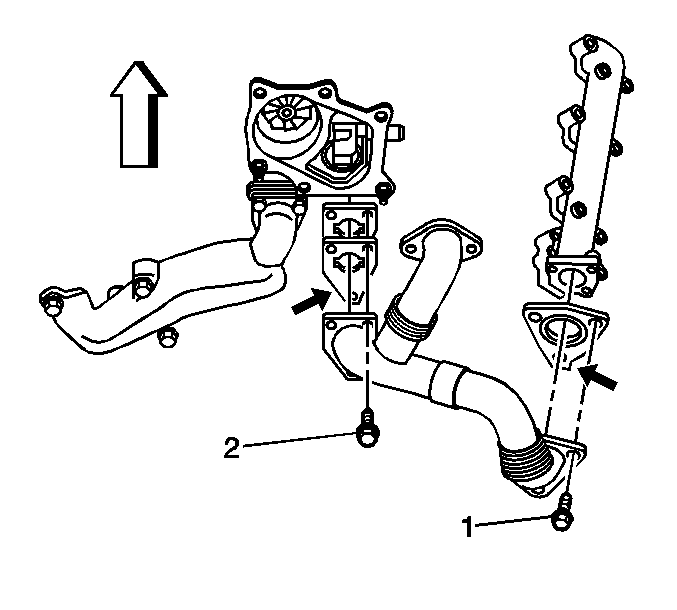
Important: Do not bend the exhaust pipe at the expansion area.
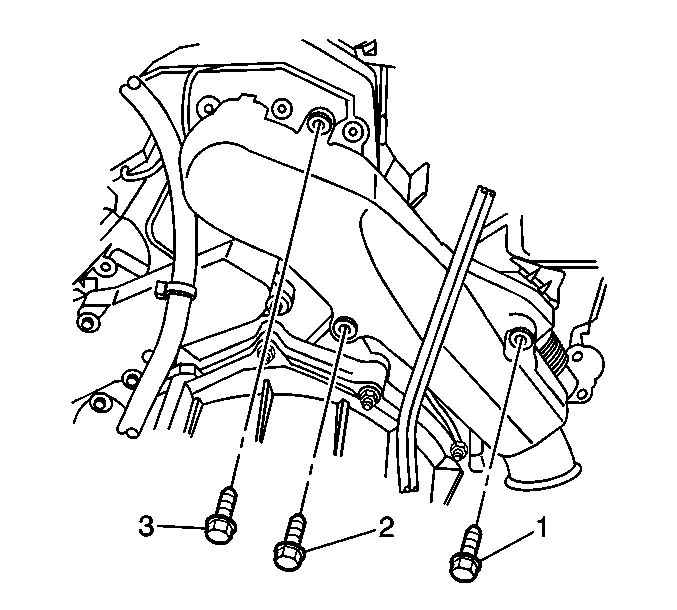
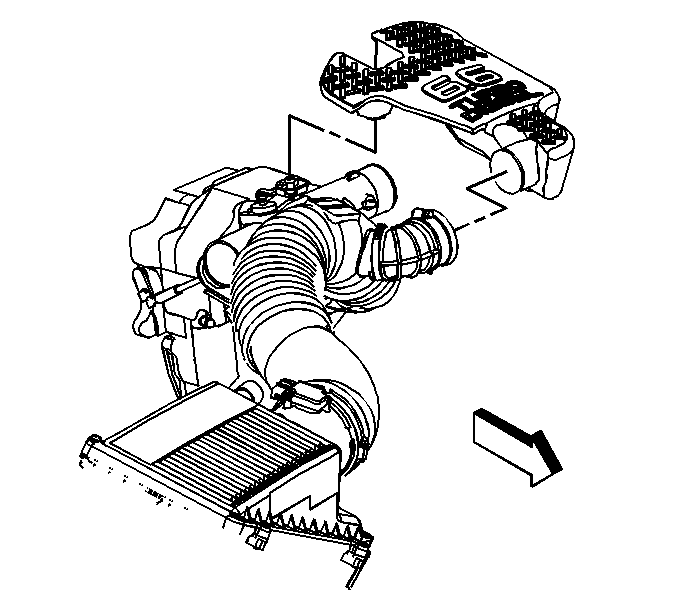
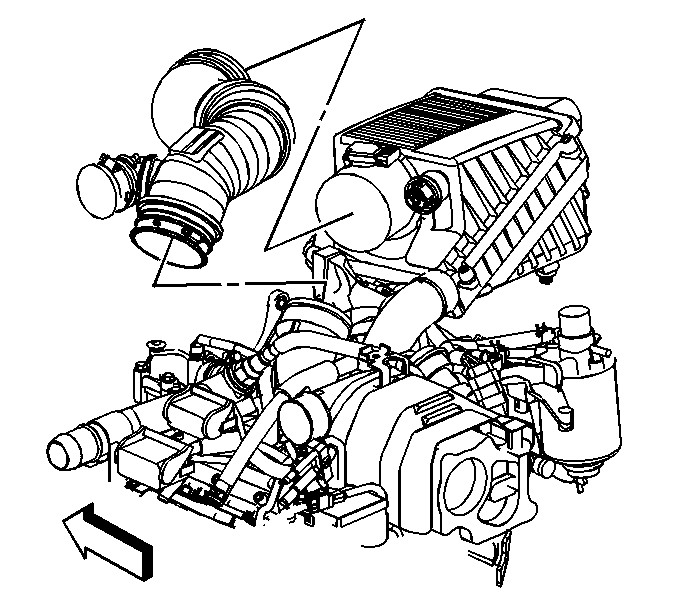
Important: After removing the turbocharger ducts, cover the turbocharger openings with tape to prevent entry of objects.
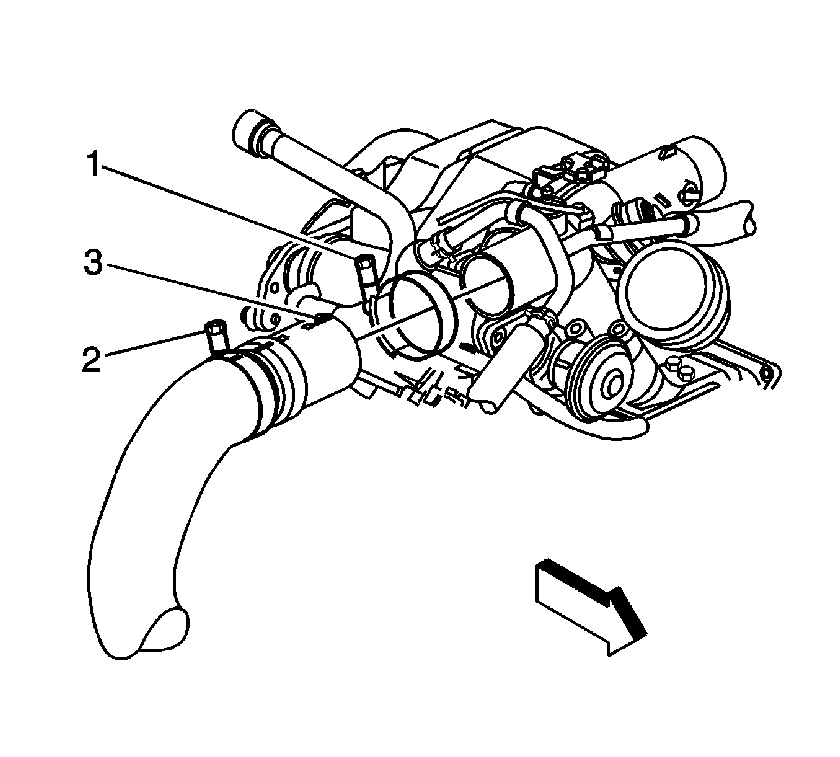
Important: Do not use a screwdriver or other tool to pry the hose loose. The hose can be torn or damage. Loosen the hose by twisting.
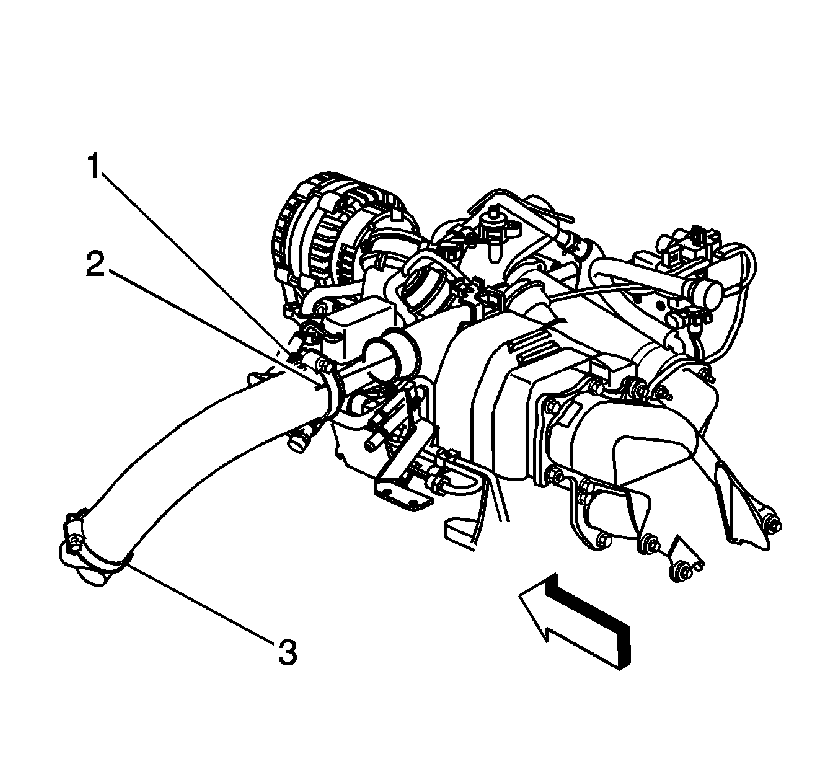
Important: Do not use a screwdriver or other tool to pry the hose loose. The hose can be torn or damage. Loosen the hose by twisting.
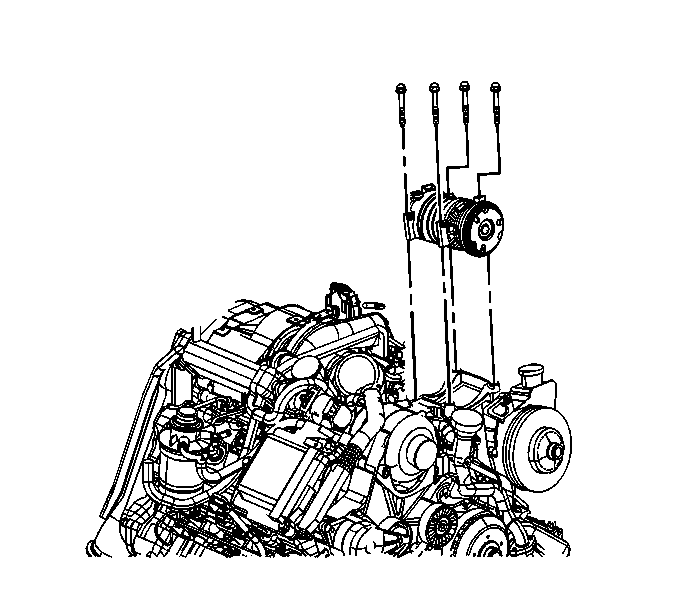
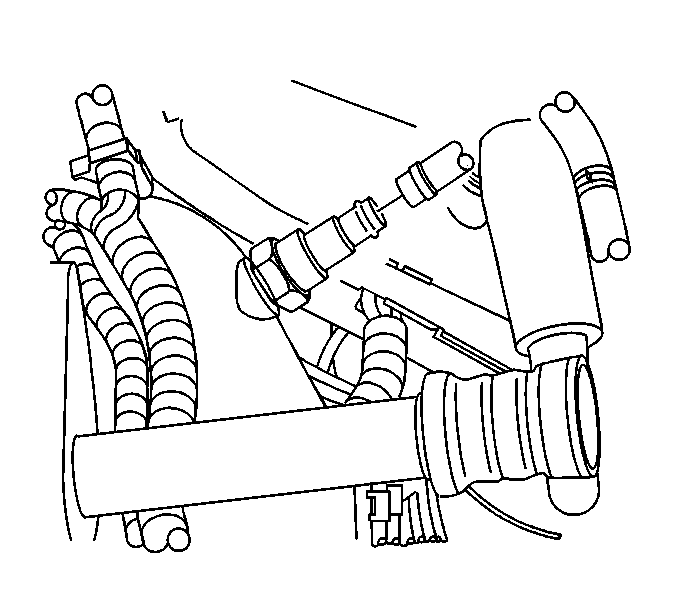
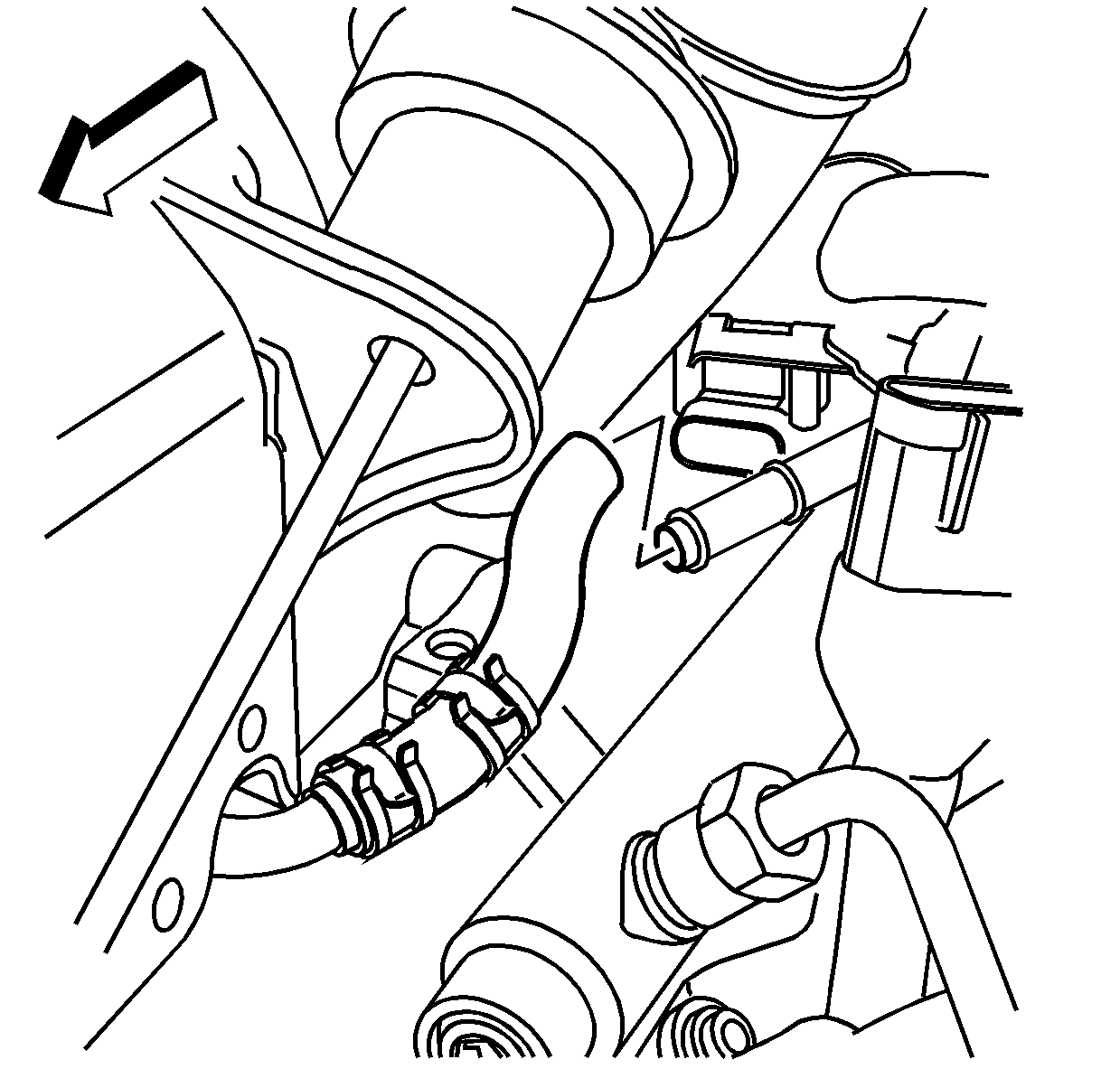
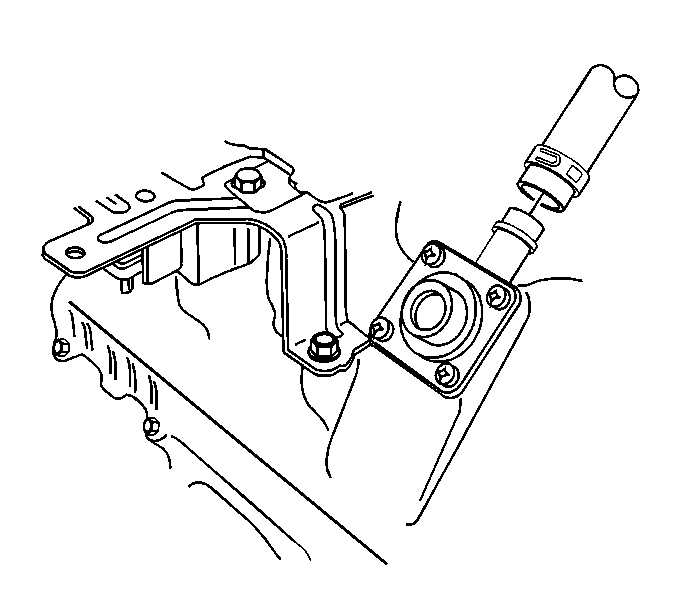
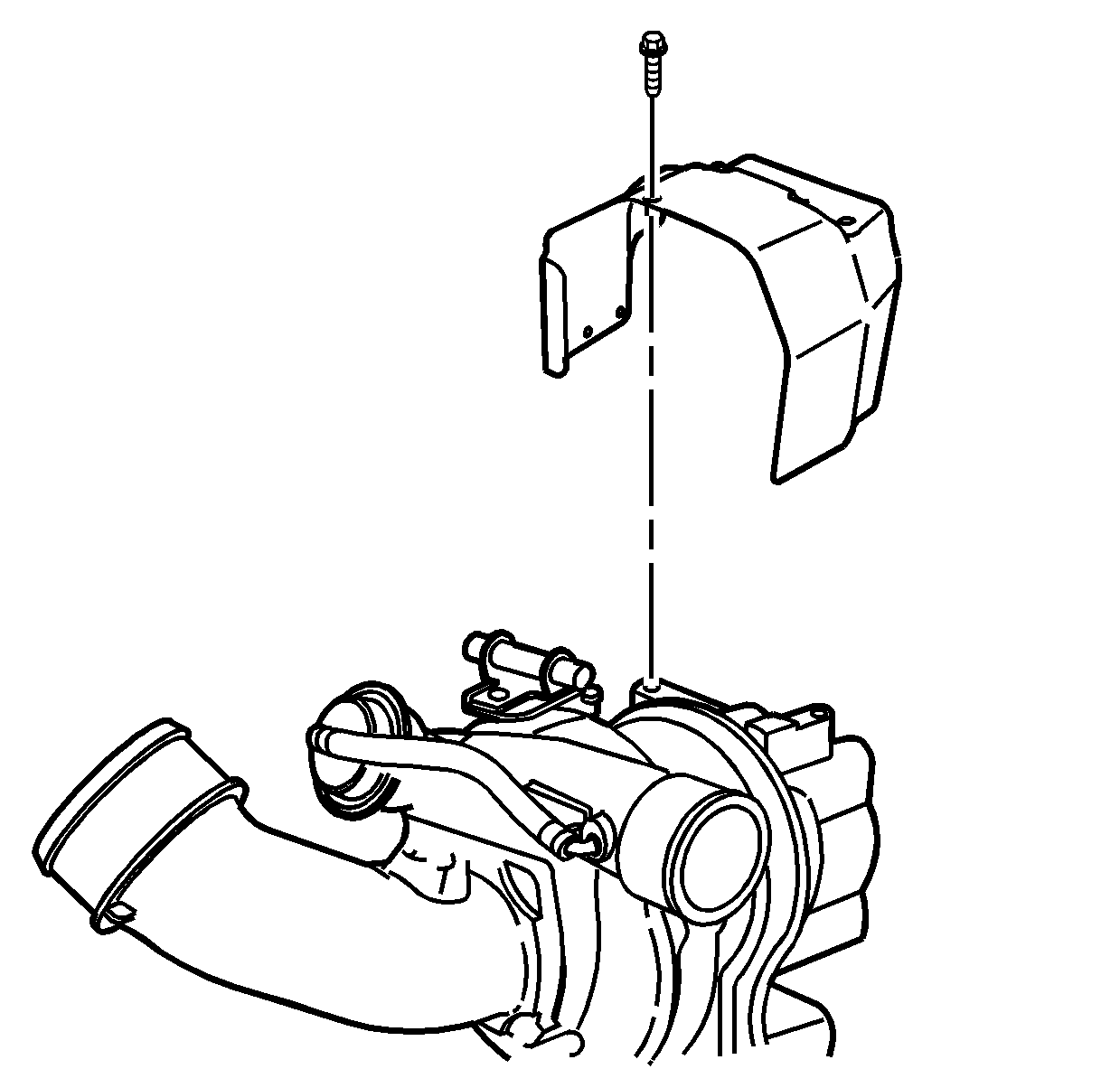

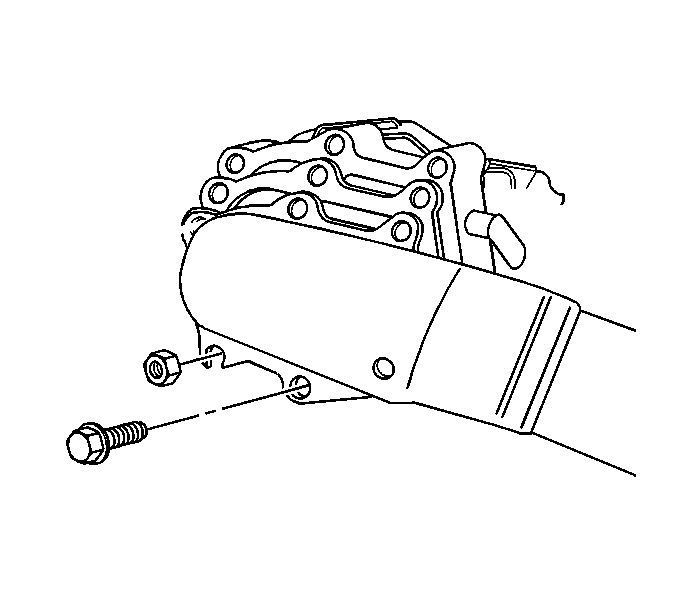
Important: The exhaust outlet does not require removal in order to remove the turbocharger.


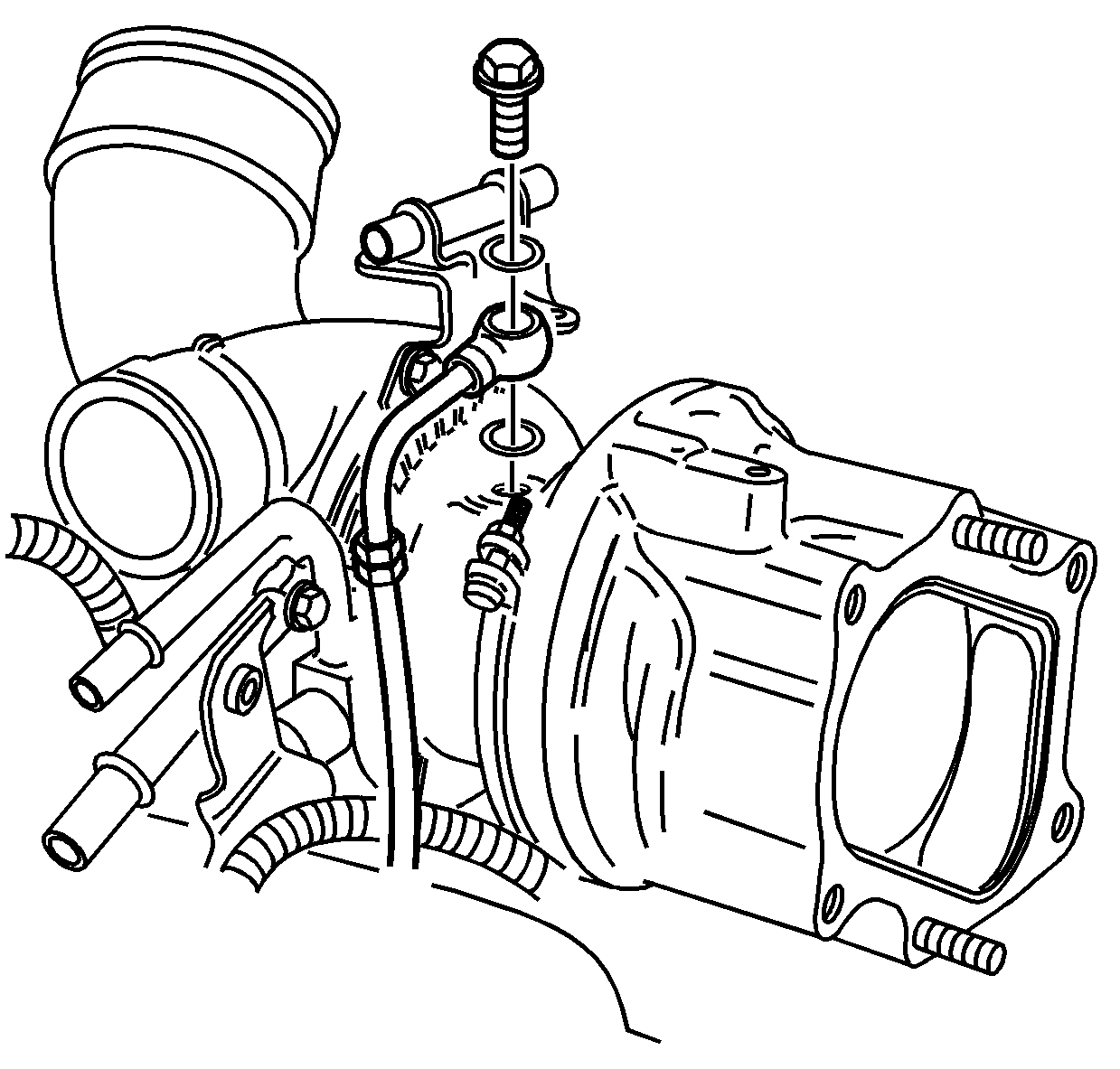
Notice: Do not twist the turbocharger oil feed pipe. Twisting of the feed pipe will result in the collapse and deformation of the plastic pipe, restricting oil flow and causing turbocharger damage. During turbocharger replacement, gently push the oil feed pipe towards the front of the engine to clear the turbocharger. Assistance may be required to keep the pipes clear of the turbocharger during removal or installation.
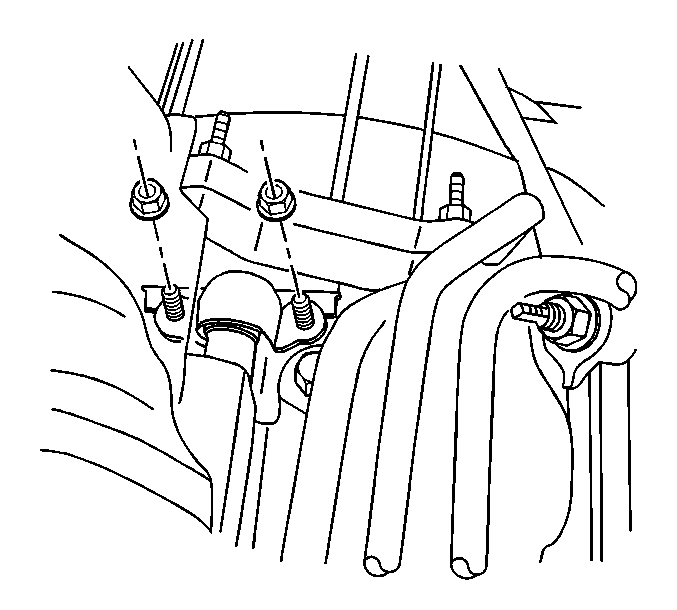
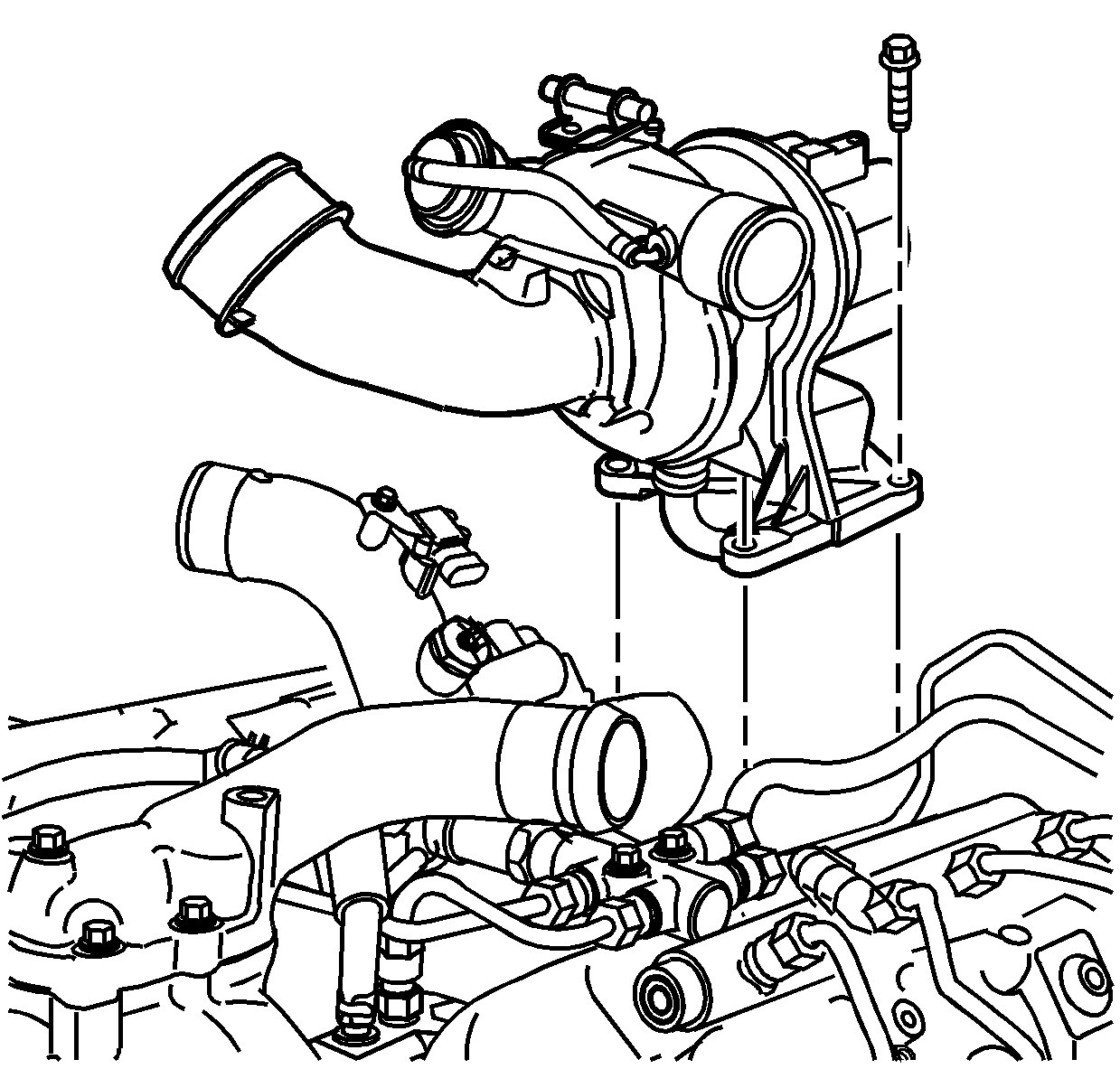
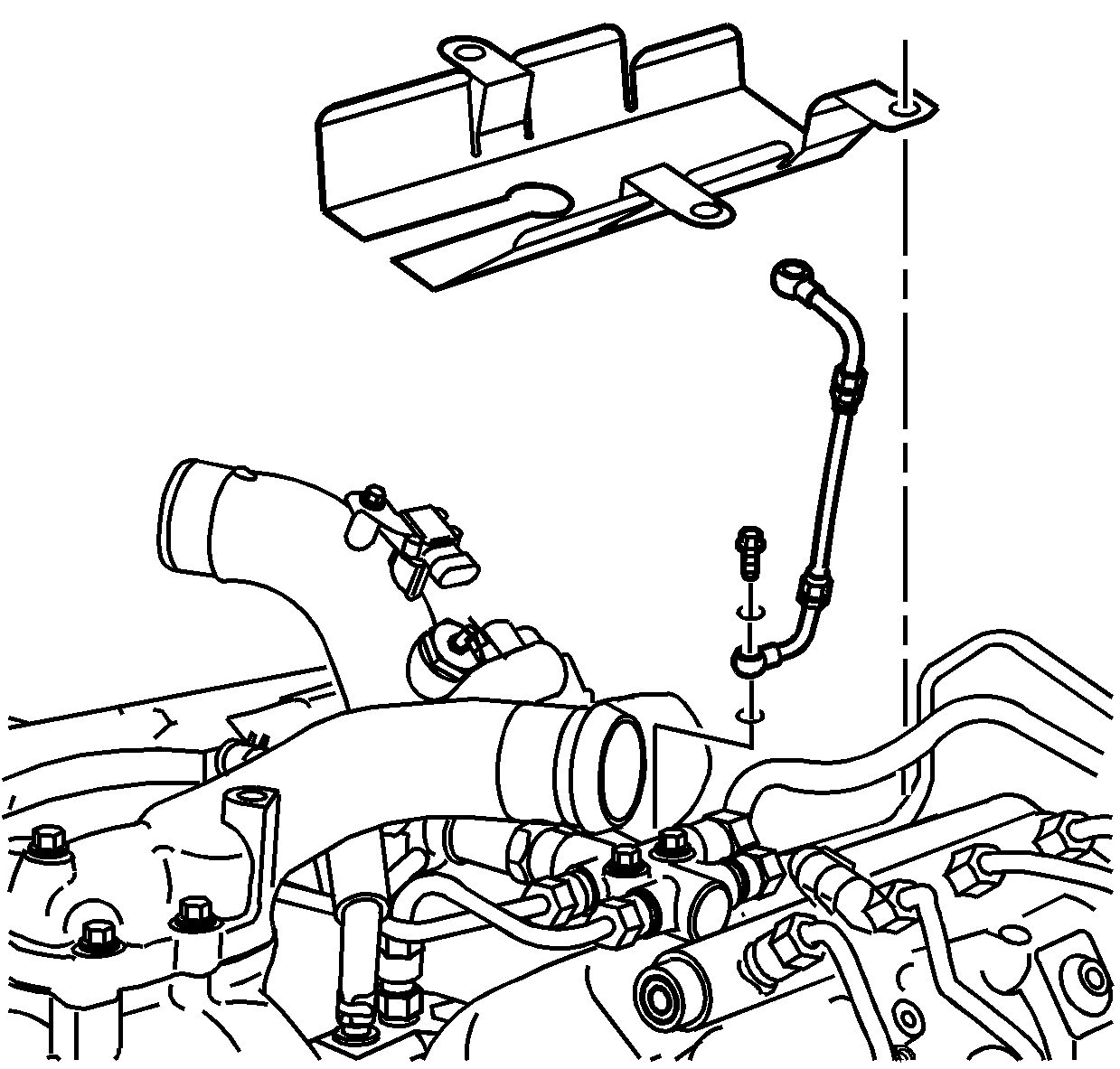
| 59.1. | Visually inspect for correct alignment of the number 4 camshaft bearing oil hole through the turbocharger oil supply hole in the block. |
| 59.2. | Turn the engine over by hand 1/2 turn and inspect for camshaft bearing movement, indicating a spun camshaft bearing. |
| 59.3. | If the bearing is spun the engine MUST be replaced. |
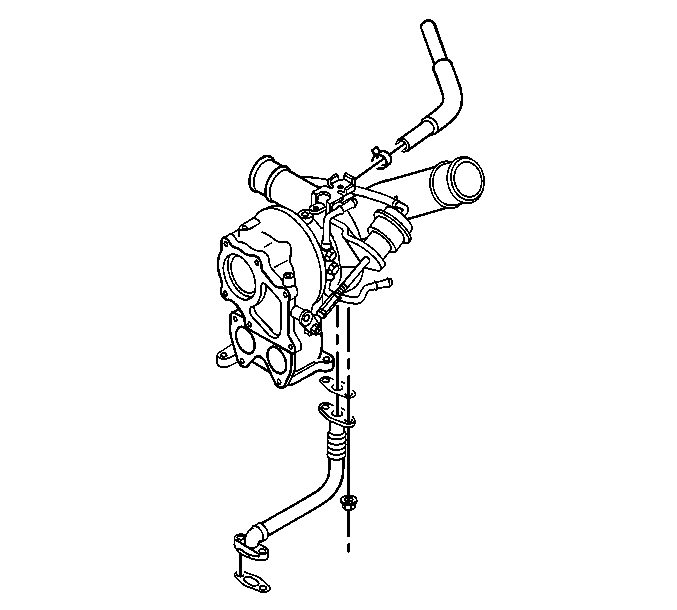
| • | The oil return pipe |
| • | The coolant return hose |
| • | The oil return pipe to turbocharger |
| • | The oil return pipe to flywheel housing |
| • | The air intake tube |
| • | Both exhaust pipe flanges |
| • | Both exhaust manifold flanges |
| • | The exhaust outlet |
| • | Turbocharger, exhaust outlet |
| • | Turbocharger, both exhaust pipes |
Installation Procedure
- Install the oil return pipe and a NEW gasket to the turbocharger.
- Install the turbocharger oil return pipe bolts.
- Install the coolant return hose to the turbocharger.
- If required, install the oil feed pipe, bolt, and washers.
- If required, install the turbocharger lower heat shield.
- Install the turbocharger.
- Install the turbocharger bolts.
- Install a NEW gasket for the oil return pipe.
- Install the turbocharger oil return pipe nuts.
- If installing a NEW turbocharger, pour about 120-150 cc (4-5 oz) of clean engine oil in the turbocharger oil feed pipe opening while rotating the impeller.
- Using NEW sealing washers, install the oil feed pipe and bolt to the turbocharger.
- Position the left exhaust pipe. The pipe flanges are different. Ensure the proper pipe flange is towards the turbocharger.
- Install the left exhaust pipe to the turbocharger with a NEW gasket. Align the gasket at the turbocharger with the tab on the gasket facing inward. To aid in installing the pipe to the turbocharger temporarily install one of the pipe to manifold bolts.
- Position the left exhaust pipe heat shield, but do not install the bolts.
- Install the right exhaust pipe with a NEW gasket to the turbocharger. Align the gasket at the turbocharger with the tab on the gasket facing inward. To aid in installing the pipe to the turbocharger temporarily install one of the pipe to manifold bolts.
- Install the right exhaust pipe to turbocharger bolts (2).
- Install the exhaust outlet with a NEW gasket to the turbocharger.
- Install the exhaust outlet bolts and nuts.
- Install the exhaust outlet heat shield.
- Install the upper 2 exhaust outlet heat shield bolts (1, 3).
- Install the turbocharger heat shield.
- Install the turbocharger heat shield bolts.
- Install the PCV hose to the upper left valve rocker arm cover.
- Install the turbocharger outlet coolant hose to the turbocharger.
- Install the turbocharger inlet coolant hose to the turbocharger coolant bypass valve.
- Install the inlet air heater relay. Refer to Intake Air Heater Relay Replacement in Engine Controls - 6.6L.
- Connect the wire terminal and the nut to intake air heater.
- Position the A/C compressor.
- Install the A/C compressor bolts.
- Install the drive belt. Refer to Drive Belt Replacement .
- Connect the A/C cut out switch electrical connector.
- Connect the A/C clutch electrical connector.
- Remove the tape from the turbocharger openings, if necessary.
- Install the charged air cooler inlet duct to the turbocharger.
- Align the mark on the duct (2) with the mark on the turbocharger.
- Position the clamp (1) as shown for proper clearance.
- Install the charged air cooler outlet duct to the intake.
- Align the mark on the duct (3) with the mark on the intake.
- Position the clamp (1) as shown for proper clearance.
- Install the outlet duct to turbocharger.
- Align the outlet duct alignment indicator (1) to the turbocharger alignment indicator (2).
- Install the outlet duct to the MAF/IAT sensor.
- Tighten the outlet duct clamps at the turbocharger and the MAF/IAT sensor.
- Raise the vehicle.
- Install the lower exhaust outlet heat shield bolt (2).
- Install the right exhaust pipe with a NEW gasket to exhaust manifold. Align the tab on the exhaust pipe gasket facing outward.
- Install the right exhaust pipe bolts (2).
- Install the left exhaust pipe with a NEW gasket to exhaust manifold. Align the tab on the exhaust pipe gasket facing outward.
- Install the left exhaust pipe bolts (1).
- Position the left exhaust pipe heat shield.
- Install the left exhaust pipe heat shield bolts.
- Install the exhaust heat shield (3) to left front of the dash panel.
- Install the shield nuts (2).
- If equipped, position the fill tube.
- Install the fill tube nuts.
- Install the exhaust pipe clamp.
- Lower the vehicle.
- Fill the cooling system. Refer to Cooling System Draining and Filling in Engine Cooling.
- Install the upper intake manifold cover.
- Install the upper intake manifold cover to the outlet duct.
- Tighten the outlet duct clamp at the upper intake manifold cover.
- Position the hood in the normal operating position by moving the hood hinge bolts from the service position (2) to the normal operating position (1).
- Connect the negative battery cables. Refer to Battery Negative Cable Disconnection and Connection in Engine Electrical.
- Road test the vehicle for normal operation.
- Inspect for coolant, oil, or exhaust leaks.
Notice: Refer to Fastener Notice in the Preface section.

Tighten
Tighten the bolts to 21 N·m (16 lb ft).

Notice: Do not twist the turbocharger oil feed pipe. Twisting of the feed pipe will result in the collapse and deformation of the plastic pipe, restricting oil flow and causing turbocharger damage. During turbocharger replacement, gently push the oil feed pipe towards the front of the engine to clear the turbocharger. Assistance may be required to keep the pipes clear of the turbocharger during removal or installation.
Important: Lubricate the washers with diesel fuel before installing.
Tighten
Tighten the bolt to 34 N·m (25 lb ft).

Tighten
Tighten the bolts to 108 N·m (80 lb ft).

Tighten
Tighten the nuts to 21 N·m (15 lb ft).

Tighten
Tighten the bolt to 34 N·m (25 lb ft).

Tighten
Tighten the bolts (1) to 53 N·m (39 lb ft).

Tighten
Tighten the bolts to 53 N·m (39 lb ft).

Tighten
Tighten the bolts/nuts to 53 N·m (39 lb ft).

Tighten
Tighten the bolts to 8 N·m (71 lb in).

Tighten
Tighten the bolts to 9 N·m (80 lb in).



Tighten
Tighten the nut to 4 N·m (35 lb in).

Tighten
Tighten the bolts to 50 N·m (37 lb ft).

Tighten
Tighten the clamp to 6 N·m (53 lb in).

Tighten
Tighten the clamp to 6 N·m (53 lb in).
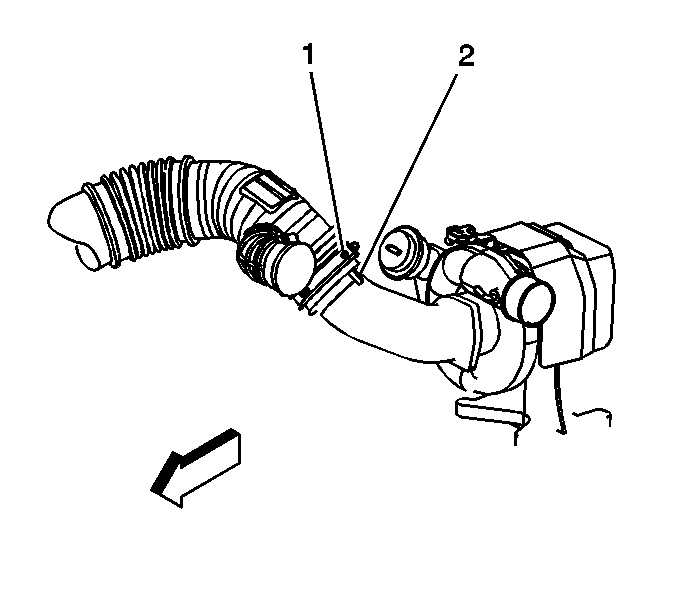

Important: The outlet duct must be fully seated against the MAF/IAT sensor with the edge of the seal in the vertical position.
Tighten
Tighten the clamps to 6 N·m (53 lb in).

Tighten
Tighten the bolt to 8 N·m (71 lb in).

Tighten
Tighten the bolts to 53 N·m (39 lb ft).

Tighten
Tighten the bolts to 53 N·m (39 lb ft).

Tighten
Tighten the bolts to 8 N·m (71 lb ft).

Tighten
Tighten the nuts to 9 N·m (80 lb ft).

Tighten
Tighten the nuts to 18 N·m (13 lb ft).

To assist in positioning the clamp on the flanges use a suitable screw jack to hold the exhaust pipe in position.
Tighten
Tighten the clamp to 15 N·m (11 lb ft).

Tighten
Tighten the clamp to 6 N·m (53 lb in).

Tighten
Tighten the bolts to 25 N·m (18 lb ft).
